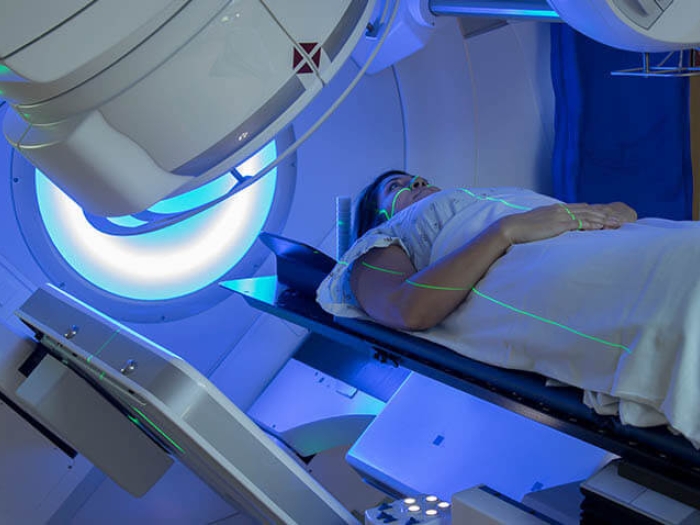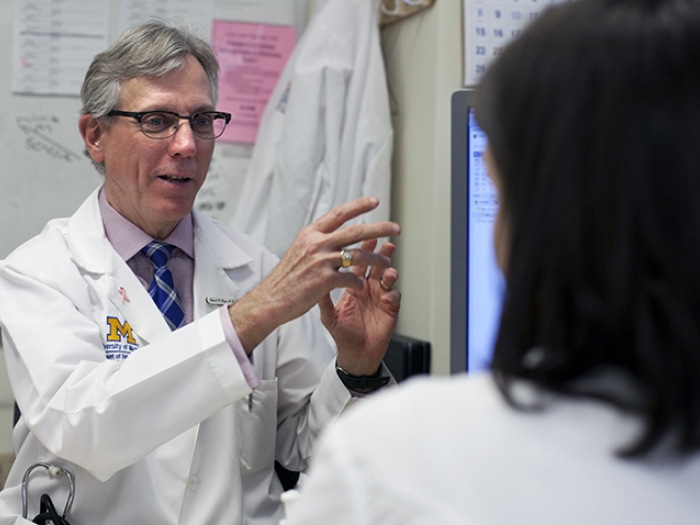A new study calls attention to the need for better partnerships between primary care physicians and oncologists.
7:00 AM
Author |

As more people survive cancer, primary care physicians and oncologists must work together to manage patient care. That's because once cancer treatment ends, patients eventually transition back to their primary care physician.
SEE ALSO: Breast Cancer Patients Who Use Social Media More Satisfied with Treatment Decisions
But a new study finds this alliance may need to start even sooner. Researchers found more than a third of women newly diagnosed with breast cancer consulted with their primary care physician about cancer treatment options.
Although that's a good sign for collaborative care, it also raises some concerns, says study author Lauren Wallner, Ph.D., MPH, assistant professor of general medicine at the University of Michigan Medical School.
"If primary care physicians are involved in cancer treatment decisions, we need to make sure they have the resources they need to properly counsel patients faced with these complicated decisions. Previous studies have shown that primary care doctors say they do not always have the information they need to participate in team-based care," Wallner says.
The study, published in the Journal of Clinical Oncology, surveyed 2,272 women about six months after a breast cancer diagnosis. Nearly two-thirds of women rated their primary care as high quality and felt their physician was engaged in their care. Nearly 70 percent perceived high communication with their primary care physician about their cancer care. For 35 percent, the primary care physician participated in the treatment decision.
Black, Hispanic and Asian women reported more involvement from primary care physicians than white women. In addition, women with less education and women with multiple other health problems were more likely to consult their primary care doctors.
"Primary care physicians were more likely to be engaged in populations that are at risk of poorer outcomes. This is a crucial opportunity to engage in collaborative care," Wallner says.
The better informed primary care physicians are ... the better [the] transition will be once cancer treatment ends.Lauren Wallner, Ph.D., MPH
The role of PCPs in cancer care
Primary care physicians often have longer relationships with their patients than oncologists, and may be more attuned to a patient's values, preferences and needs. In the study, researchers found that most patients had been seeing their primary care doctor for two years or more.
SEE ALSO: For Breast Cancer, When Does Worry Outweigh Risk?
Collaborative care is particularly important when patients have multiple health conditions. A primary care physician can help better manage other conditions, as well as preventive care, during cancer treatment.
One caveat to the researchers' findings, however, is that patients who reported their primary care physician was more involved in their cancer treatment did not express more satisfaction with the treatment process or their treatment decision. Wallner suggests more research is needed to better understand the content of these treatment decision conversations and how to integrate primary care into cancer treatment.
Wallner recently received a grant to develop a navigation tool focused on fostering team-based care for breast cancer patients. Identifying opportunities to improve communication between oncology and primary care will be a key feature of this work.
"Primary care physicians are already participating in cancer care before diagnosis, during treatment and into survivorship. It's essential to make sure communication channels are open during that whole process. The better informed primary care physicians are — involved during the continuum of cancer care and not just after the fact — the better that transition will be once cancer treatment ends," Wallner says.

Explore a variety of healthcare news & stories by visiting the Health Lab home page for more articles.

Department of Communication at Michigan Medicine
Want top health & research news weekly? Sign up for Health Lab’s newsletters today!





